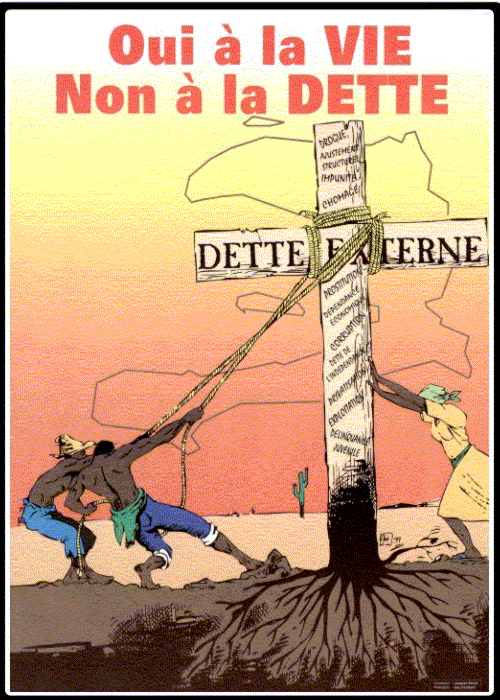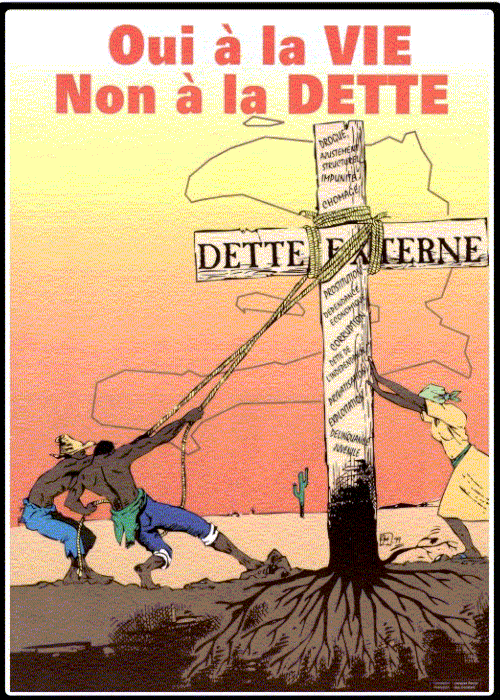The history of the haitian debt goes back to the founding of this nation which was able to win its independence from French domination in 1804. From this date and until 1825, Haiti had difficulty in getting rid of its image as a pariha state, an image foisted on them by wealthy slave-owning interests. Before the difficulty of becoming recognized as an independent state by the international community, among which many of the key players maintained their slave-holding practices, and faced by french pretentions of reclaiming under its yoke the rebel state, the Haitian governemnt had to buy its recognition by the international community. In 1814, in order to come to terms with France’s ambitions which put pressure on the new state, Alexandre Pétion proposed for the first time, compensation in exchange for the recognition of the state’s independance. However, this proposal was stillborn. In spite of the failure of this proposal by his predecessor, Jean-Pierre Boyer reiterated the offer and after Charles X assumed power in 1824, the deal changed. Haitian independence was fully recognized by France on the condition of compensation in the amount of 150 million francs to offset the losses suffered by the former colonists, an amount which is equivalent to 400 million USD. This sum was calculated though unrigorous estimates of the values of properties owned by the former colonists based on a projection of the incomes that would have been generated by the exploitation of their properties over ten years. The sum exceded the hopes of the Haitian negociators; at the time, 150 frances represented Haiti’s total budget over ten years. Furthermore, the agreement included a clause which halved the tariffs imposed on French ships. These tariffs were the pricipal source of income for the government making the payment of the debt all the more onerous.
Lire la suite »Haiti: Why is it necessary to relieve Haiti of its debt burden?

